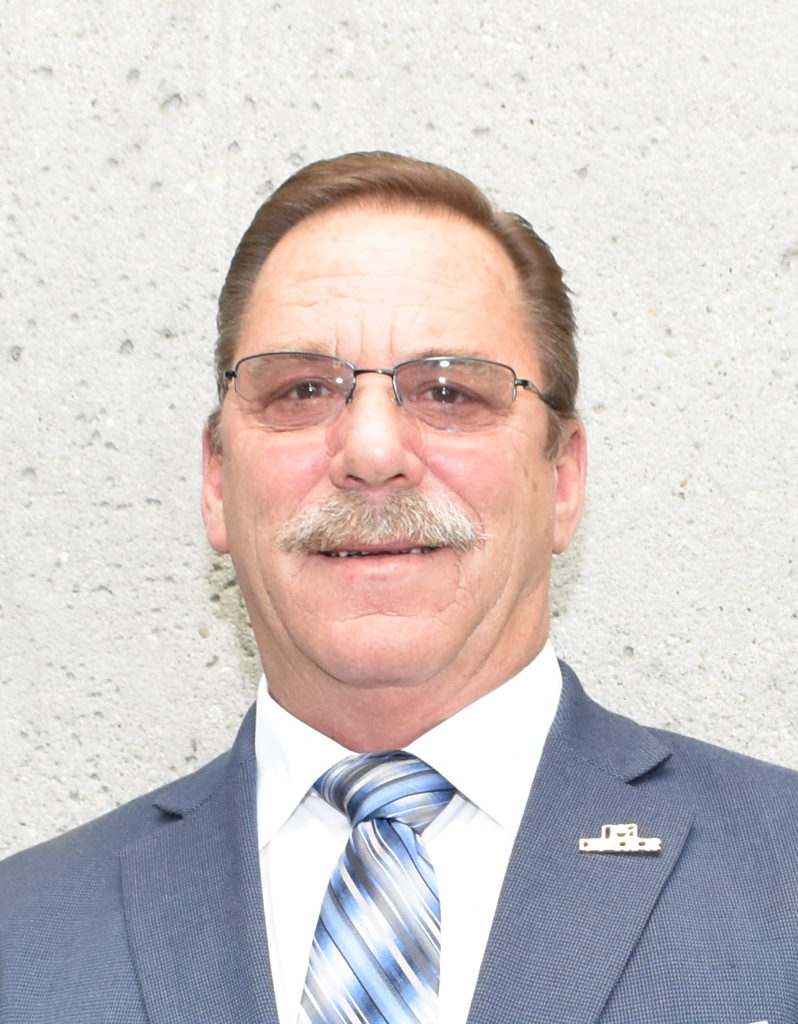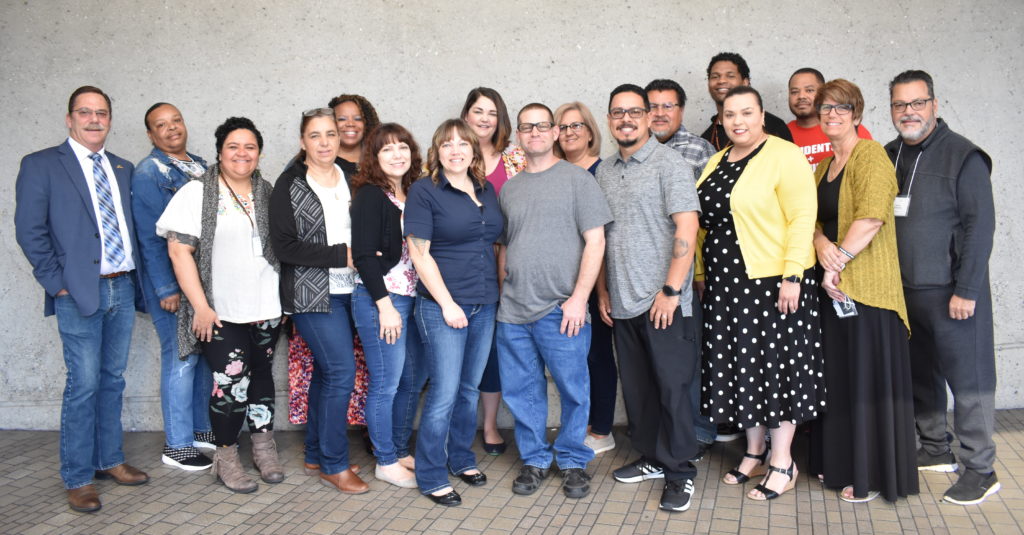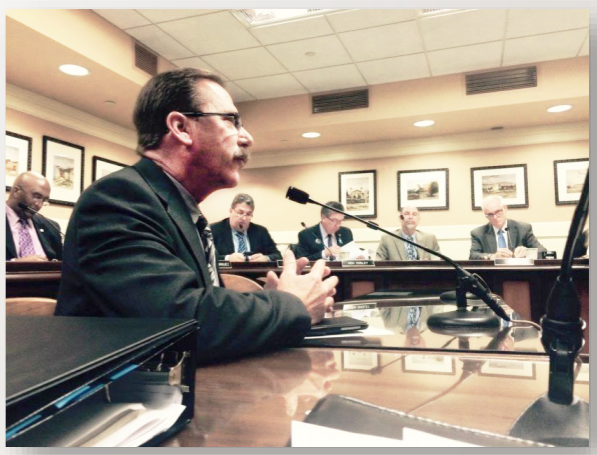Dan Kivett, president of the Redlands Education Support
Professionals Association (RESPA), got a call from a RESPA member at the end of
2014. The school safety officer had been injured recently while breaking up a
fight between students and was on workers’ compensation. He wanted to visit a
dying relative over the holidays but had just found out that state law did not
allow public school employees on workers’ comp to travel out of state without
school board approval. Of course, the board would not be convening before the
holidays.

“I made a number of calls to try to help our member. I
emailed the president of CTA,” says Kivett. “I went knocking on doors at CTA
till someone agreed with me. With huge help from CTA, along with Assembly
Member Chris Holden, AB 915 was created and introduced.”
Kivett made a few trips to Sacramento to testify in support
of AB 915, which eventually became law and removed the travel restrictions for
public school employees. He is justifiably proud of the role he played.
“That is one thing I will always treasure among the
accomplishments in my life,” he says. “It affected every educator.”
Kivett does not rest on his laurels, however, and continues
to make a difference for colleagues and educators. For this, he has been named
CTA’s 2019 Paula J. Monroe Education Support Professional of the Year.
“Dan deserves this recognition on his achievements alone,
but just as much so for who he is: A kind, thoughtful, intelligent leader who
never seeks personal recognition and always deflects credit,” CTA President
Eric Heins said in presenting the award at March State Council.
Indeed, Kivett would rather remain out of the spotlight and
in the background. “I love a pat on the back, but I don’t like standing out in
the crowd,” he says.
Others are not so modest about his skills. La Tonia Lopez of
Animo Classified Employees Association met Kivett when he helped facilitate the
CTA ESP Academy she attended three years ago. She recalls his help when she
became ACEA president, also three years ago. “I inherited the presidency,” she
says. “I was clueless. He gave me guidance and advice, and helped me mobilize
and organize.”
In her nomination letter, Lopez wrote that Kivett’s “ability
to advocate for and educate members is amazing. Each person or local’s needs
are heard. He is careful in taking in what the issue is and navigating how to
create solutions for continued engagement for the ESP demographic. He is the
best at empowering and uplifting ESP workers. He is pivotal in elevating the
ESP careers.”

Kivett was originally a site rep before Paula Monroe
herself, then RESPA president, convinced him to get more involved. He became a
RESPA director, then president, in the early 2000s. He stepped back for a while
before “sensing a need” and jumping back in.
A year ago, he was elected NEA director for District 11. He
takes his responsibilities very seriously. “I was elected by teachers. They
recognize that I’m willing to do whatever it takes to get the job done,” he
says.
“I get to work on federal stuff. I’ve got one more
challenge: to get rid of WEP GPO,” he adds, referring to the Windfall
Elimination Provision and the Government Pension Offset, two Social Security
provisions that unfairly penalize public employees’ benefits.
Also in conjunction with NEA, Kivett helped push the
Recognizing Inspiring School Employees (RISE) Award Program bill in Congress
(H.R. 276), which was passed in late March and when signed will establish
national recognition of ESPs.

Kivett thinks all this is long overdue. “ESPs have to train
and attend school to maintain a high skill and knowledge level, just like those
in other professions,” he told NEA Today in a recent article, noting that many
ESPs are also student mentors, athletic coaches, community volunteers and
organizers. “They are the gears that keep school operations moving. All this is
done without much recognition.”
Despite his busy schedule, most days you can find Kivett at
the schools in Redlands Unified, a district that encompasses five cities, where
he’s been a public safety officer for the past 19 years.
“Teachers ask me to do presentations on campus safety or
drug stuff,” he says. He also works with students, intervening in and
redirecting unwanted behaviors. He’s often with truants, talking to them on
campus or at their homes. “Sometimes the parent or guardian is the issue,” he
says. “The family may not have food, so we direct them to services.”
Kivett recently celebrated his 35th wedding anniversary and has children working as ESPs in the district, as well as grandchildren who attend its schools. Here’s hoping he’ll be keeping schools and kids safe for years to come.
Essential ESPs
According to NEA, there are 3 million education support professionals working in U.S. public schools and colleges. One of every three public school employees is an ESP; 50 percent of them have college degrees. A snapshot of what they do:
- 75 percent work to ensure student and school safety.
- 70 percent assist children with clothing, food and other necessities.
- 65 percent donate their own money to help students purchase classroom materials, field trip tickets, etc. (average donation: $217 per year).
- 35 percent volunteer to read to students.
The Discussion 0 comments Post a Comment